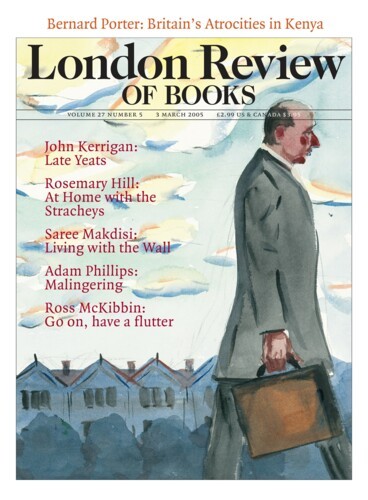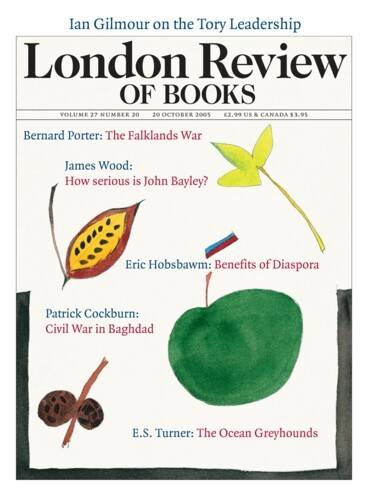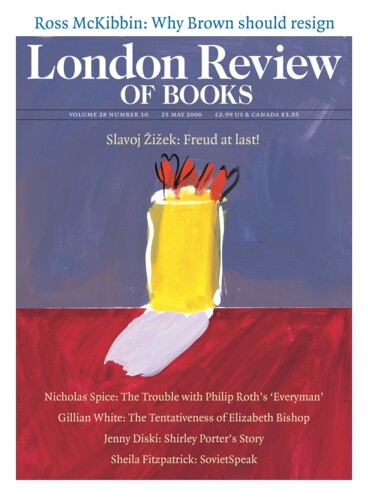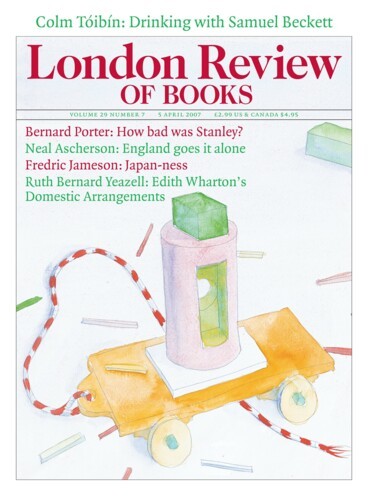Bernard Porter
Bernard Porter’s recent books include Imperial Britain: What the Empire Wasn’t and Empire Ways. He lives in Stockholm.
Palmerstonian: The Falklands War
Bernard Porter, 20 October 2005
In 1982 Britain’s continued possession of the Falkland (Malvinas) Islands was ridiculous. Even at the British Empire’s height they had been one of its least important and favoured colonies. At the Great Exhibition of 1851 they were represented by a showcase containing some tufts of wool and dried grasses. Dr Johnson’s famous description of them in 1771, which Lawrence...
Nobbled or Not: the Central African Federation
Bernard Porter, 25 May 2006
The Central African Federation was one of the most bizarre creations of late British imperialism. Formed controversially in 1953 out of the colonies of Northern and Southern Rhodesia and Nyasaland (today Zambia, Zimbabwe and Malawi), it never looked like succeeding, and spluttered to an ignominious death ten years later. Everything about it was wrong. It wasn’t even a federation in the...
Did he puff his crimes to please a bloodthirsty readership? How bad was Stanley?
Bernard Porter, 5 April 2007
For a biographer looking for an unlikely reputation to rescue, reputations don’t come much unlikelier than that of Henry Morton Stanley. Widely excoriated in his own time as one of the most brutal of African travellers, condemned by historians for his part in the creation of King Leopold II’s Congo Free State, and derided both then and since for his famous but embarrassingly arch...
Stanley in Bumbireh
5 April 2007
Pieces about Bernard Porter in the LRB
Lumpers v. Splitters: How to Build an Empire
Ferdinand Mount, 31 March 2016
‘Those who make many species are the “splitters” and those who make few are the “lumpers”,’ Charles Darwin wrote in 1857 to his friend, the great botanist...
Read anywhere with the London Review of Books app, available now from the App Store for Apple devices, Google Play for Android devices and Amazon for your Kindle Fire.
Sign up to our newsletter
For highlights from the latest issue, our archive and the blog, as well as news, events and exclusive promotions.




